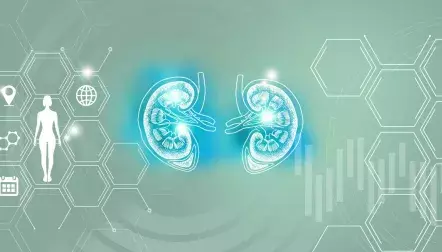
Aspirin and kidney disease
- Medically reviewed by
- AKF's Medical Advisory Committee
- Last updated
- June 28, 2024
What is aspirin?
Aspirin is a special type of nonsteroidal anti-inflammatory drug (NSAID) that is used to treat mild pain, fever, inflammation and arthritis. It is also used to prevent:
- Blood clots, which form when clumps of blood cells called platelets stick together. These can block blood flow to parts of your body, causing damage to tissues and organs.
- Heart attacks, which happen when blood flow to the heart is blocked by build ups of plaque or a blood clot in the arteries, causing damage to the muscle of the heart.
- Strokes, which happen when blood flow to part of the brain is blocked by a blood clot, a piece of plaque, or other substances, causing damage to the brain.
Aspirin is available over the counter (OTC), which means you do not need to be prescribed aspirin to take it. It can be purchased as tablets, capsules, or liquids.
How does aspirin protect my heart if I have kidney disease?
For people with CKD who have had a heart attack or a stroke in the past, your healthcare provider may recommend taking a daily low dose aspirin (75-100 mg) (also called "baby aspirin") to prevent future heart attacks.
Aspirin acts as a blood thinner and changes the way that blood clots. Blood clotting is when blood cells, called platelets, clump together. It usually happens to help prevent excessive bleeding when you have an injury that is bleeding. Sometimes these clots form when they are not supposed to, and this can be dangerous. Blood clots can form or travel in the body and block blood flow to the heart or the brain, causing a heart attack or a stroke. As aspirin thins the blood, it also prevents blood cells from clumping together. This slows the clotting process and may prevent a future heart attack or stroke.
How does aspirin work?
Aspirin decreases the formation of hormones known as prostaglandins, which causes inflammation, swelling, pain and fever. Aspirin works specifically by blocking an enzyme called cyclooxygenase which produces prostaglandins that cause inflammation, swelling, pain and fever. When this happens, aspirin helps lessen those symptoms.
Aspirin also thins the blood. It does this by blocking the production of hormones, prostaglandins, which cause platelets (a type of blood cell) to stick together. When this happens, it reduces the formation of blood clots.
What are some common side effects of Aspirin?
Some common side effects include:
- Feeling dizzy
- Fatigue
- Thirst
- Sweating
- Stomach pain or bloating
- Nausea and vomiting
- Heartburn
- Diarrhea or constipation
These side effects vary between people. Talk to your doctor if you have any concerns.
It is important to talk to your healthcare provider about your medicines and medicine management questions you have.

